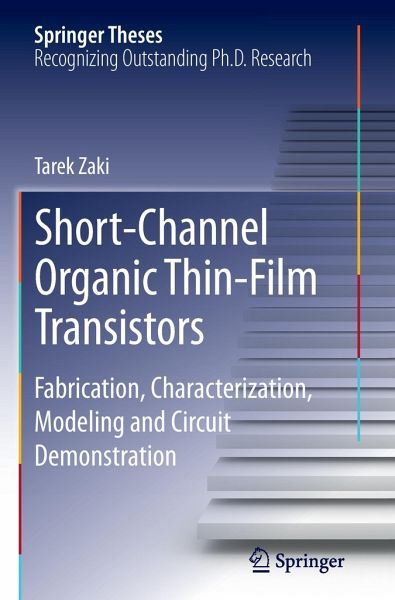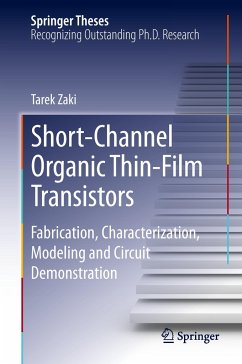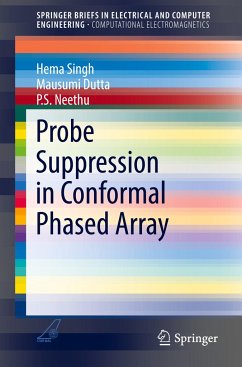
Short-Channel Organic Thin-Film Transistors
Fabrication, Characterization, Modeling and Circuit Demonstration
Versandkostenfrei!
Versandfertig in 6-10 Tagen
76,99 €
inkl. MwSt.
Weitere Ausgaben:

PAYBACK Punkte
38 °P sammeln!
This work takes advantage of high-resolution silicon stencil masks to build air-stable complementary OTFTs using a low-temperature fabrication process. Plastic electronics based on organic thin-film transistors (OTFTs) pave the way for cheap, flexible and large-area products. Over the past few years, OTFTs have undergone remarkable advances in terms of reliability, performance and scale of integration. Many factors contribute to the allure of this technology; the masks exhibit excellent stiffness and stability, thus allowing OTFTs with submicrometer channel lengths and superb device uniformity...
This work takes advantage of high-resolution silicon stencil masks to build air-stable complementary OTFTs using a low-temperature fabrication process. Plastic electronics based on organic thin-film transistors (OTFTs) pave the way for cheap, flexible and large-area products. Over the past few years, OTFTs have undergone remarkable advances in terms of reliability, performance and scale of integration. Many factors contribute to the allure of this technology; the masks exhibit excellent stiffness and stability, thus allowing OTFTs with submicrometer channel lengths and superb device uniformity to be patterned. Furthermore, the OTFTs employ an ultra-thin gate dielectric that provides a sufficiently high capacitance to enable the transistors to operate at voltages as low as 3 V. The critical challenges in this development are the subtle mechanisms that govern the properties of aggressively scaled OTFTs. These mechanisms, dictated by device physics, are well described and implemented into circuit-design tools to ensure adequate simulation accuracy.














